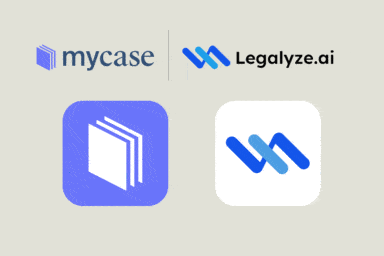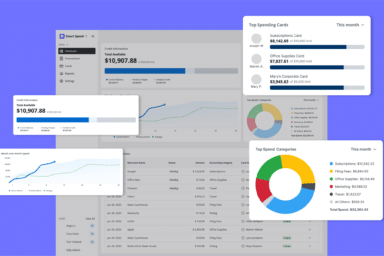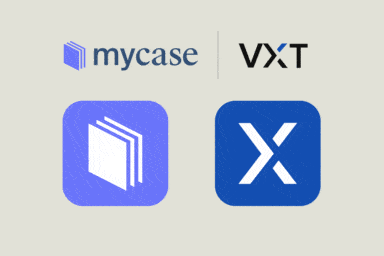ABA Survey: Top 7 Reasons Law Firms Are Using Cloud-Based Legal Software
Aug 6, 2019
| 4 min readIn 2019, small firm lawyers are making the move to cloud-based legal software more than ever before.
Here are the top 7 reasons law firms are making the move according to the ABA, ranked by percentage of top-cited reasons among respondents:
- Ease of access from any location (68%)
- 24/7 availability (59%)
- Affordability and the low cost of entry (48%)
- Robust data back-up and recovery (46%)
- Minimal ramp time of software (40%)
- The elimination of IT and software management requirements (34%)
- Better security than what firms could provide in-office (31%)
Bogged down by your server-based law practice management software?
So how many small firm lawyers are making the switch? According to the survey results, 55% of lawyers surveyed have used cloud-computing software for law-related tasks over the past year, up from 38% in 2016. And many more are thinking of switching to cloud-based legal software in the year to come. Small law firms were the most likely to plan to do so. The survey results showed that firms with 2-9 lawyers led the way at 15%. Next up was law firms with 10-49 lawyers at 14%, followed by firms with 50-99 lawyers at 13%.
The top reason cited for making the switch – ease of access from any location – isn’t surprising since lawyers are more reliant on mobile devices in 2019 than they’ve ever been. In fact, according to the Report, 95% of lawyers surveyed reported that they use their smartphones outside of the office for law-related purposes. And, nearly half of all lawyers – 49% – reported that they used their tablet for law-related purposes while away from the office. And laptop use as a primary computers is also increasing, with 38% of lawyers surveyed reporting that to be the case.
Another reason cited for making the switch from premise-based software to legal software in the cloud is the 24/7 availability of law firm information, both for lawyers and their clients. Notably, one of the primary ways that small firms access and share law firm information is by using online portals built into law practice management software.
Small firm lawyers are able to use these portals to share and collaborate with clients and with other lawyers in the firm in many different ways. Document sharing is one of the most popular, with 31% of lawyers overall reporting that they used cloud software to accomplish this. 37% of lawyers from firms of 10-49 lawyers shared documents in the cloud, followed by 30% of lawyers from firms with 2-9 lawyers.
Small firm lawyers also provide case updates to other firm members and their clients using online portals. 18% of lawyers from firms with 2-9 lawyers used portals for this purpose, as did 14% of lawyers from firms with 10-49 lawyers.
According to the Report, another popular use for cloud-based portals is to communicate both with clients and internally with other employees at their firms. 33% of lawyers overall reported that they used portals to communicate. 37% of lawyers from firms of 2-9 lawyers took advantage of this feature, as did 26% of lawyers from firms with 10-49 lawyers.
Lawyers also reported using online payment portals to accept credit card and ACH payments from clients. 30% of all lawyers reported that their firms offered this service to clients, with lawyers from firms with 50-99 lawyers using it the most (50%). Next up were firms with 2-9 lawyers (30%), followed by firms with 10-49 lawyers (29%).
Finally, many lawyers surveyed shared that their firms used software for their firm’s lead intake and management processes, which also happen to be tools that, if you’re lucky, just might be included in your firm’s cloud-based law practice management software. Overall, 22% of lawyers surveyed reported that their firms used lead intake software. Firms with 50-99 lawyers were the most likely to do so at 50%, followed by lawyers from firms with 2-9 lawyers (27%).
Do any of these statistics about how small firms are using cloud-based legal software in the cloud surprise you? Is your firm in the cloud yet? If not, isn’t it time make the switch? Find out how easy it is in this FREE eguide: “Moving Your Law Practice to the Cloud: How to Transition to Cloud-based Legal Software.”


